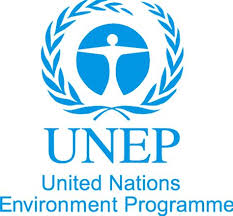Making Peace with Nature Report:

The United Nations Environment Programme (UNEP) has released the ‘Making Peace with Nature’ report, ahead of the fifth session of the UN Environment Assembly (UNEA-5).
- The Report explains how climate change, biodiversity loss and pollution add up to three self-inflicted planetary emergencies that are closely interconnected and put the well-being of current and future generations at unacceptable risk.
Findings:
- Climate Change: Climate change is increasing the chances of the Arctic Ocean being ice-free in summer, further disrupting ocean circulation and Arctic ecosystems.
- Climate change drives changes in wildfires and water stress and combines with biodiversity loss to degrade land and enhance drought in some regions.
- More than one million of the estimated 8 million plant and animal species are increasingly at risk of extinction.
- Coral reefs are particularly vulnerable to climate change and are projected to decline to 10-30% of their former cover at 1.5°C of warming and to less than 1% at 2°C of warming, compromising food provision, tourism and coastal protection.
- Every year, nine million people die prematurely due to pollution.
- Up to 400 million tons of heavy metals, solvents, toxic sludge and other industrial wastes enter the world’s waters annually.
- Human prosperity is strained by widening inequalities, whereby the burden of environmental decline weighs heaviest on the poor and vulnerable and looms even larger over today’s youth and future generations.
- Inequity in economic growth has left 1.3 billion people poor.
Performance over SDGs:
- Current and projected changes in climate, biodiversity loss and pollution make achieving the Sustainable Development Goals (SDGs) even more challenging.
- The current mode of development degrades the Earth’s finite capacity to sustain human well-being.




